If you are a professional scuba diver or just want to snorkel and see the beautiful underwater world of South Florida, then we invite you to dive into the mysterious underwater world.
Features of diving in Florida
- Diving depths – up to 35 m.
- Water temperature – from +16 ° C to +27 ° C depending on the time of year, in the spring water temperature ranges from +20-22 ° C.
- Air temperature – from +22 ° C to +30 ° C (depending on the month).
- Visibility – 10-25 m (up to 30 m in some places).
- Presence of currents – minor, moderate, and intensive.
- Bottom structure – sandy, stony, muddy, coral.
- The presence of thermoclines – is found in both salt waters and freshwater lakes in Florida.
- Season and off-season for diving – the favorable subtropical climate and always warm water make diving in Florida accessible throughout the 12 months of the year.
- Prices: one dive for certified divers – $85 (no equipment); one-day dive tour with gear rental – $114; package “3 dives in one day,” – $240; 5-dive package – $375; snorkeling – $57.
Advantages of diving in Florida
Diving in Miami and other cities in Florida will appeal to experienced certified divers as well as absolute beginners. There are dozens of specialized centers in the state, that organize diving tours and snorkeling in salt and fresh water. Russian-speaking diving enthusiasts can dive in Miami in Russian.
Among the popular services of local clubs are diving on racks, night diving, drifting, underwater photography, and videography. In addition, Florida is rightly called the capital of American cave diving. Of particular interest is the town of Crystal River, where you can snorkel in the presence of manta rays. The Inside Scoop On Scuba Diving In Florida.
10 Best Florida Dive Centers
- Florida Keys Dive Center;
- Hall’s Diving Center & Career Institute;
- Jupiter Dive Center;
- American Pro Diving Center;
- South Florida Diving Headquarters;
- Pompano Dive Center;
- Rainbow Reef Dive Center;
- Scuba Adventures;
- Narcosis Scuba;
- ScubaQuest.
| Dive Center Name | Location | Courses Offered | Dive Trips Offered | Equipment Rental | Certification Agencies |
|---|---|---|---|---|---|
| Florida Keys Dive Center | Tavernier, FL | Open Water, Advanced, Rescue, Divemaster | Reef, wreck, night, and spearfishing trips in the Florida Keys | Yes | PADI, TDI, SDI |
| Hall’s Diving Center | Marathon, FL | Open Water, Advanced, Rescue, Divemaster | Reef and wreck dives in the Florida Keys | Yes | PADI, SDI, NAUI |
| Jupiter Dive Center | Jupiter, FL | Open Water, Advanced, Rescue, Divemaster | Shark and drift dives, Blue Heron Bridge, and reefs | Yes | PADI, SDI, TDI |
| American Pro Diving Center | Riviera Beach, FL | Open Water, Advanced, Rescue, Divemaster | Wreck and reef dives, Blue Heron Bridge, and drift dives | Yes | PADI, SDI, TDI |
| South Florida Diving HQ | Pompano Beach, FL | Open Water, Advanced, Rescue, Divemaster | Wreck, reef, and drift dives in South Florida | Yes | PADI, SDI, TDI |
| Pompano Dive Center | Pompano Beach, FL | Open Water, Advanced, Rescue, Divemaster | Wreck, reef, and drift dives in South Florida | Yes | PADI, SDI, TDI |
| Rainbow Reef Dive Center | Key Largo, FL | Open Water, Advanced, Rescue, Divemaster | Reef and wreck dives in the Florida Keys | Yes | PADI, SDI, TDI |
| Scuba Adventures | Panama City Beach | Open Water, Advanced, Rescue, Divemaster | Mexico Beach Artificial Reef and USS Strength Wreck | Yes | PADI, SDI, TDI |
| Narcosis Scuba | West Palm Beach | Open Water, Advanced, Rescue, Divemaster | Blue Heron Bridge, Loggerhead Reef, and drift diving | Yes | PADI, SDI, TDI |
| ScubaQuest | Naples, FL | Open Water, Advanced, Rescue, Divemaster | Gulf of Mexico and the Florida Keys dive trips | Yes | PADI, SDI, TDI |
This table compares the location, courses offered, dive trips available, equipment rental options, and certification agencies for each dive center.
Popular dive sites and Raves in Florida
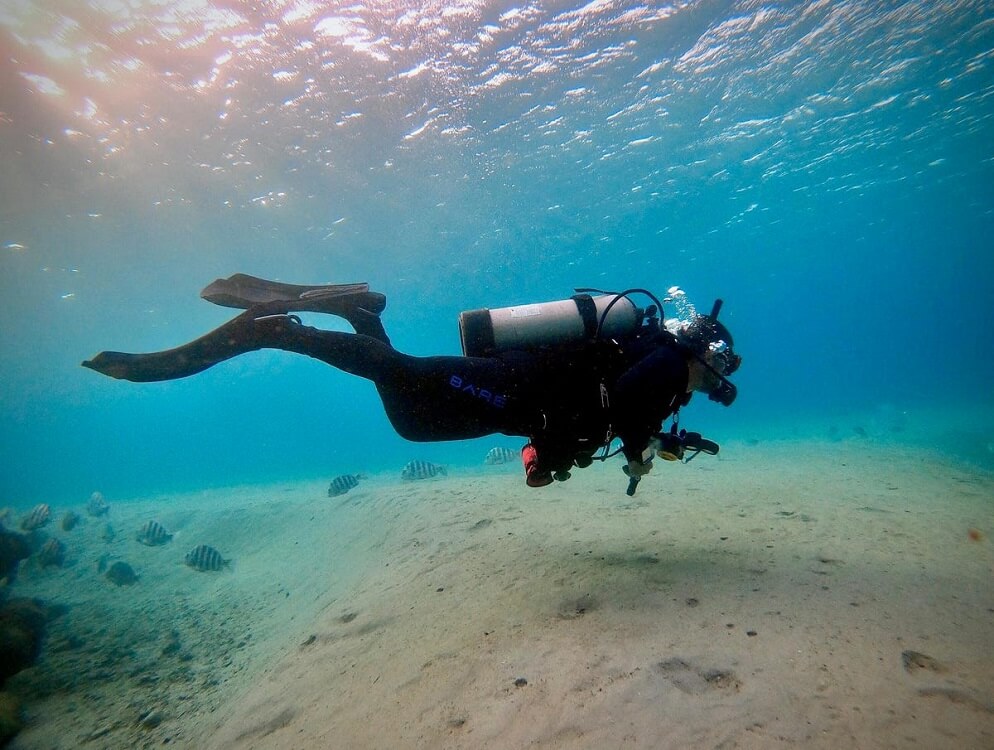
Kings Bay in Crystal River, which includes a whole group of freshwater springs with a variety of grottos and fish, the dive site is known as a habitat for manatees (about 15 meters deep);
National Park Dry Tortugas (depth of 10-15 meters, suitable for beginners divers and Open Water certificate holders);
artificial reef Capt Dan Wreck – a ship sunk in February 1990 (lies at a depth of 27-34 meters, visibility up to 30 m);
Morrison Springs (15 m deep, visibility varies from 5 to 10 m on different days);
The southeastern coast of the state, is popular primarily among drifting fans, due to the proximity of the Gulf Stream; there are several submerged racks in the waters.
Planning to dive in Miami Beach and other Florida locations? We recommend that you take the PADI Deep Diver, Wreck Diver, Drift Diver, and Cavern Diver courses ahead of time.
The best places for diving
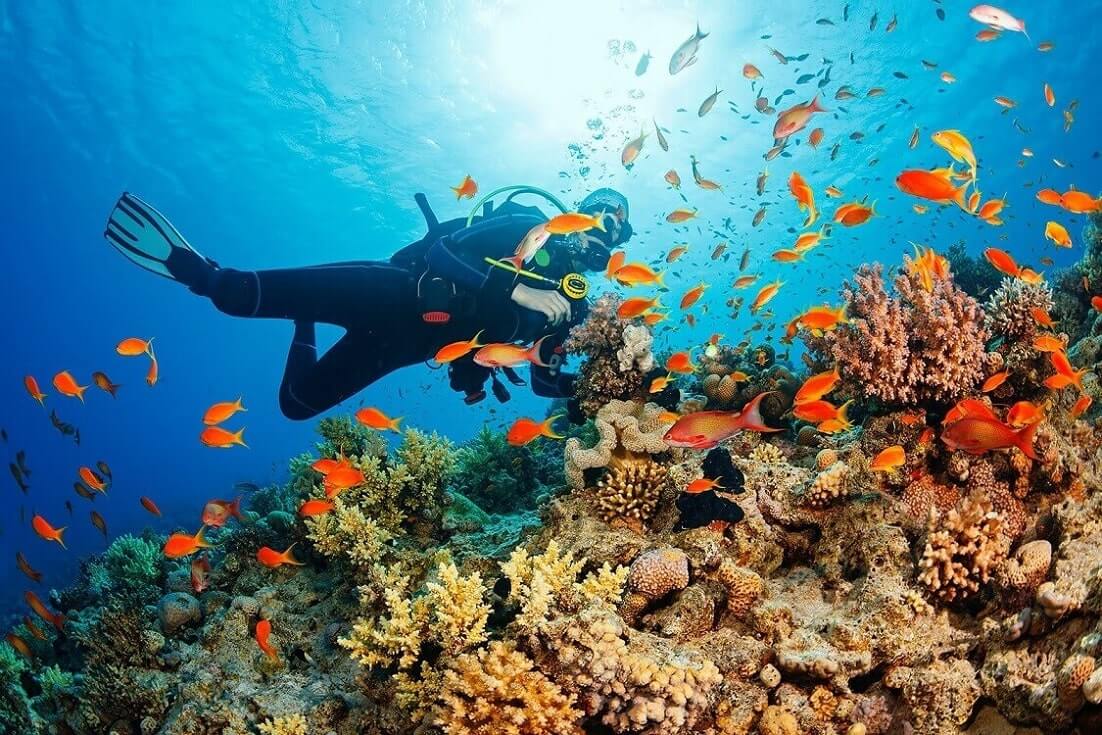
SHERI-LYNN
One of the most spectacular shipwreck dives in Miami, Sheri-Lynn is great for advanced open-water diving. The wreck of a 235-foot Dutch freighter built in 1952 whose remains is now scattered across the ocean floor 90 feet below the sea. With numerous bulkheads and tanks inside the wreck, the ship has become a thriving artificial reef where large pelagic fish such as sea bass, mahi-mahi, and sharks abound off the coast. The wreckage of the ship has been scattered over the years due to weather conditions and is about five miles east of Key Biscayne.
HALF MOON SHIPWRECK
The site of the Half Moon Shipwreck is in the water in shallow water. – 10 feet. Located just offshore between Virginia Key and Key Biscayne, Half Moon Shipwreck is accessible to snorkelers and divers alike. Named for a 154-foot German sailing yacht captured by England during World War I, Half Moon eventually reached Miami waters and ran aground in 1930. Its wreckage later became an underwater archaeological preserve. A multitude of tropical fish, covered with soft corals, settled here in shallow calm waters.
EMERALD REEF
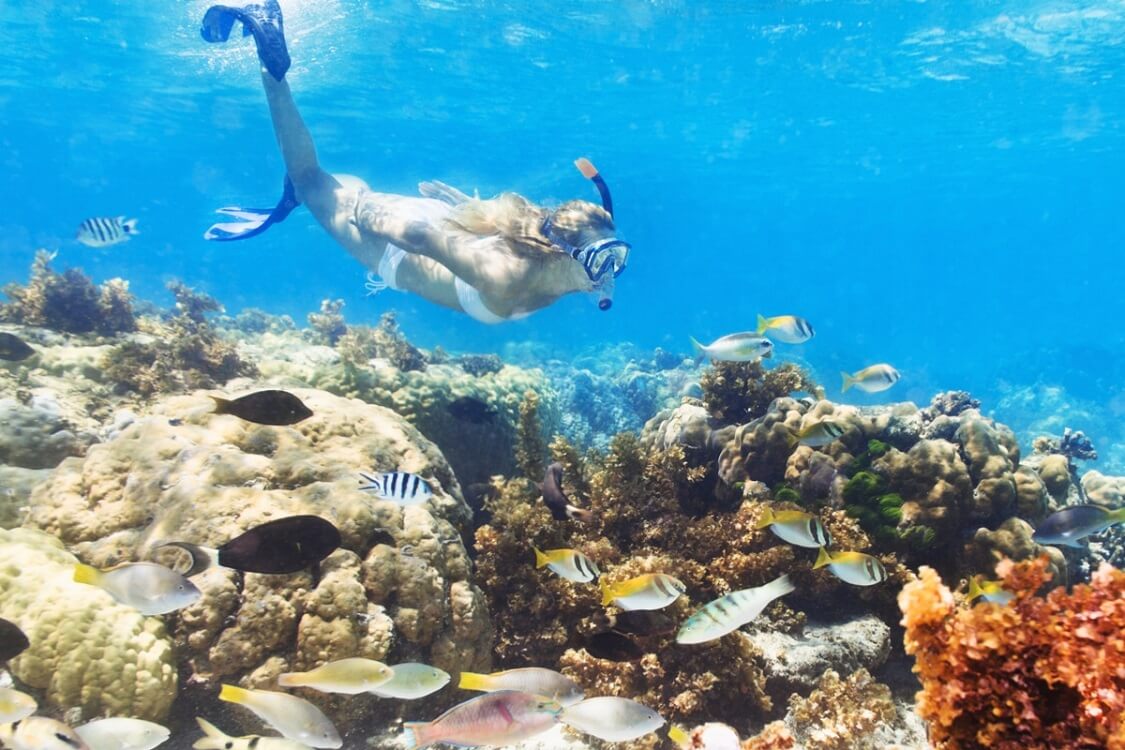
Consisting of three shallow reefs located one mile east of Key Biscayne, Emerald Reef is considered one of Miami’s most beautiful coral reefs. With an average depth of about 20 feet, it’s also an ideal spot for snorkeling. Expect to see salmon and puffer corals, various sponges, and flocks of young tropical fish such as surgeonfish, bluefish, and other dragonfish.
JOSE CUERVO ARTIFICIAL REEF
To access the artificial reef you can simply swim in the South Beach sea, walk up to the lifeguard stand on Second Street, and wade 150 yards with flippers, mask, and snorkel in tow. There you will find an amazing underwater spectacle: a huge concrete bar turned into an artificial reef. The concrete bar became a habitat for a variety of tropical fish such as yellowtail bass, parrotfish, and even spiny lobster.
Diving in Florida FAQ
Q: What are some of the best diving spots in Florida?
A: Florida offers a variety of diving spots, some of the best include the Florida Keys, West Palm Beach, the Panhandle, and the Gulf of Mexico.
Q: What type of marine life can I expect to see while diving in Florida?
A: Divers in Florida can expect to see a variety of marine life including sea turtles, dolphins, sharks, manatees, and a variety of fish species.
Q: What is the best time of year to go diving in Florida?
A: The best time of year to go diving in Florida is during the summer months when the water is warm and the visibility is good.
Q: Do I need a special certification to go diving in Florida?
A: Yes, divers in Florida are required to have a certification from a recognized diving organization such as PADI or NAUI.
Q: Can I rent diving equipment in Florida?
A: Yes, there are several dive shops and rental facilities throughout Florida that offer equipment rental to divers.
Q: Are there any diving restrictions or regulations in Florida?
A: Yes, there are several restrictions and regulations that divers must abide by while diving in Florida including dive flag requirements, depth limits, and protected marine areas.
Q: What is the water temperature like in Florida for diving?
A: The water temperature in Florida varies depending on the time of year and location, but is generally warm enough to dive comfortably in a wetsuit year-round.
Q: Are there any dangerous marine animals to be aware of while diving in Florida?
A: Yes, there are several dangerous marine animals that divers should be aware of in Florida including sharks, jellyfish, and barracudas. However, incidents are rare and can be avoided by following basic safety precautions.
Q: Can I go diving in Florida if I am a beginner?
A: Yes, there are several dive operators in Florida that offer beginner dive courses and guided dives for those new to diving.
Last Updated on April 7, 2023 by Viktoria
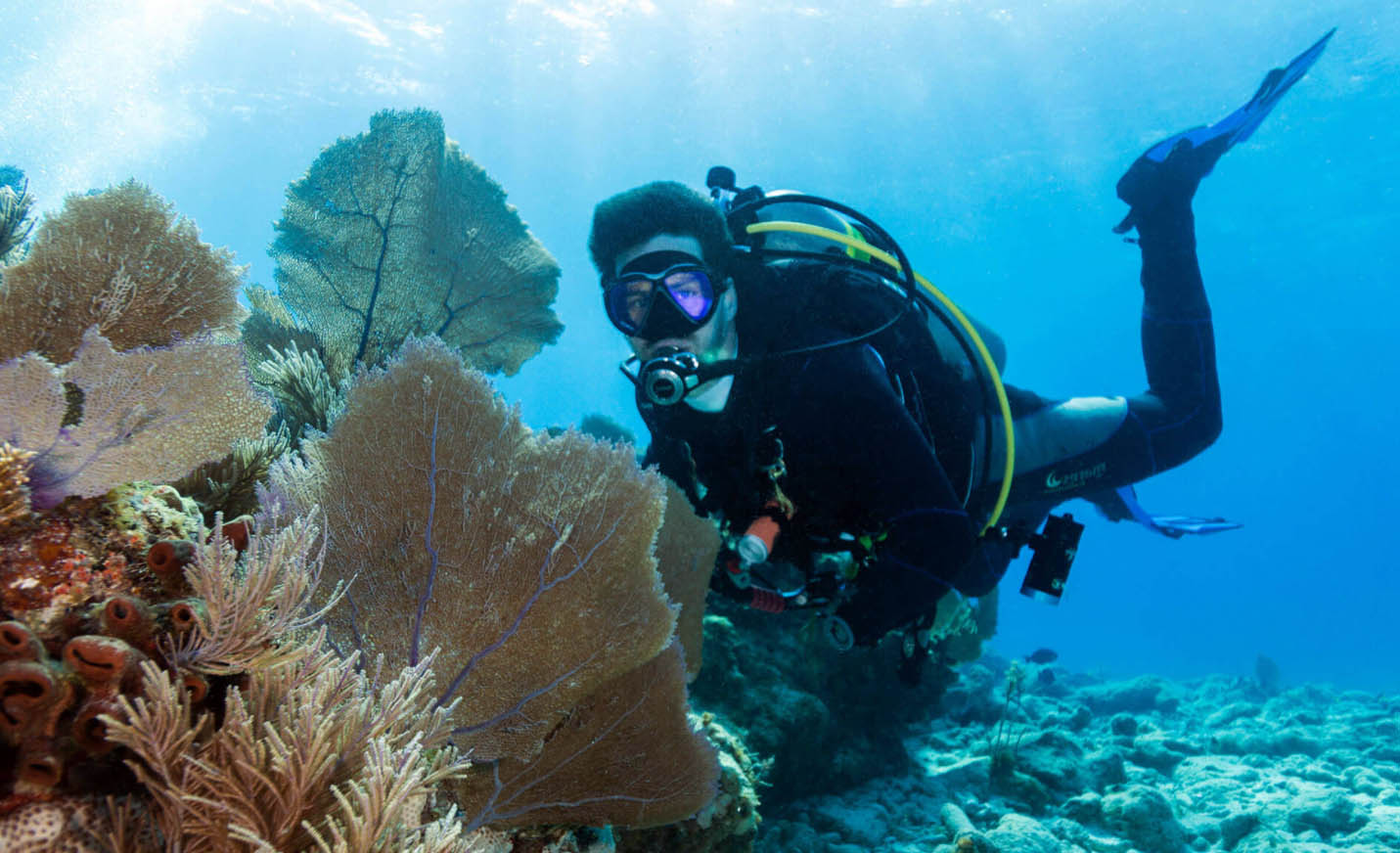
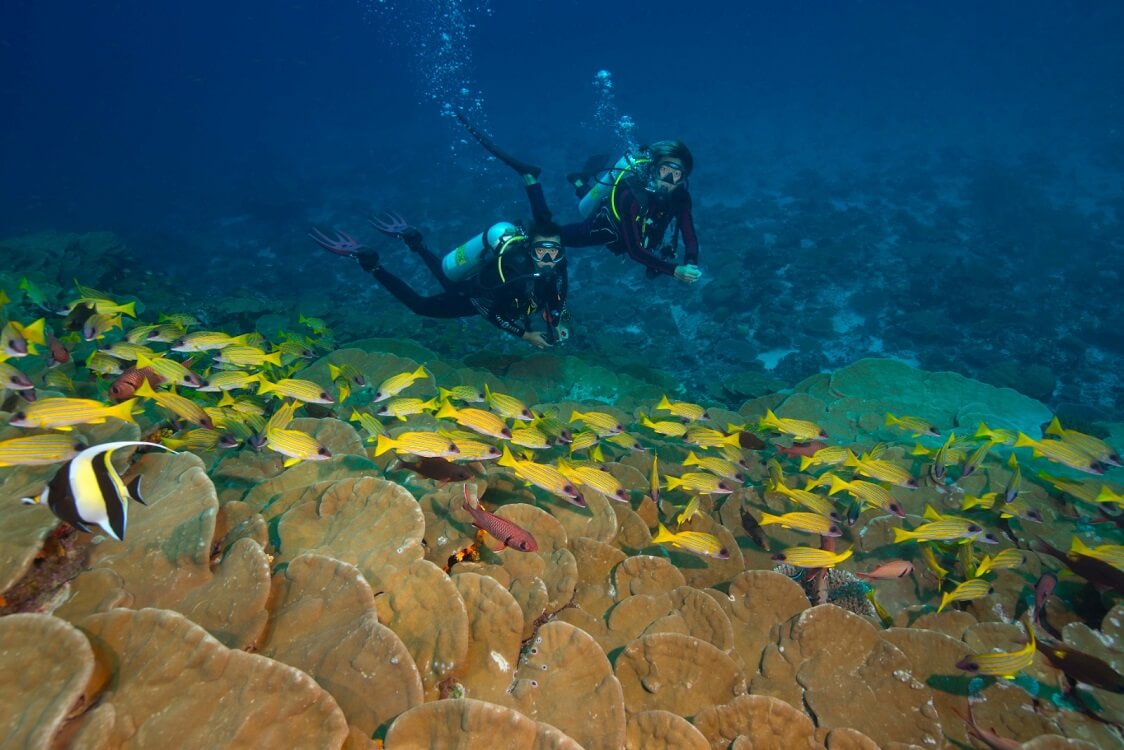
Comments are closed